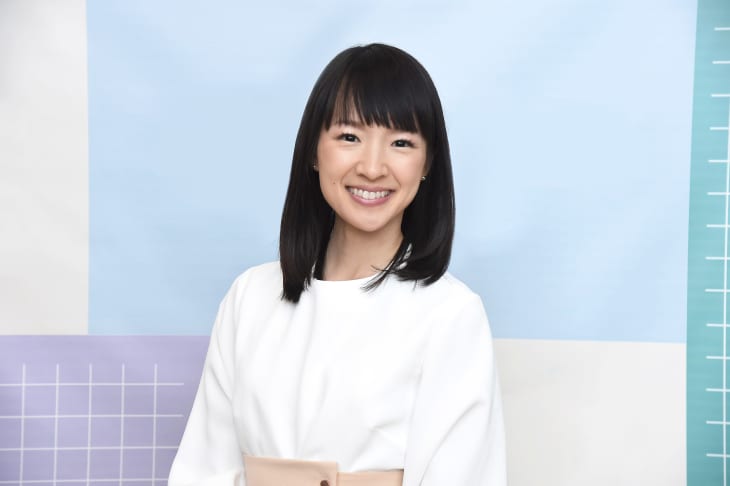Marie Kondo Doesn’t Hate Your Books

In Twitter controversies this week, we saw the blasphemous (exaggerated) idea that Marie Kondo is suggesting people throw out all of their books.
Kondo’s new Netflix show, “Tidying Up With Marie Kondo,” has thrust her KonMari decluttering method into the national spotlight again (her book, “The Life Changing Magic of Tidying Up,” is even back on the New York Times best sellers list this week).
But while it’s reintroduced the joys of decluttering and folding to a new audience, one particular component of her program has sparked (bad pun) Internet outrage: the part about books. In fact, decluttering books is step two of her five-step program (check them all out here).
Tweets, think pieces, and overheard conversations have struck up over the past week. The primary argument is a bit of a misunderstanding of Kondo’s spark joy premise: Many are saying that if you only keep books that make you happy, you’ll never read things that stretch you intellectually. Sparking joy isn’t about “happiness” per se, but about finding the objects that bring meaning into our lives and discarding (or finding new homes like, say, a used bookstore) for the ones that don’t. She’s not suggesting that people keep only books that make them feel joyful or happy, but the books that they feel connected to. Perhaps one book the critics need to pick up is “The Life Changing Magic of Tidying Up.”
At a talk at the 92nd St. Y on Manhattan’s Upper East Side on Tuesday evening, the New York Times’ Katie Rosman asked Kondo herself about the book controversy.
“The point of the Konmari method is to figure out what you value most,” Kondo said, via a translator. If your response to getting rid of books is anger, she said, then you “must” keep them—even if someone like her suggests you get rid of them. That’s a sign they “spark joy” and you can “keep it with confidence.”
She also explained that there might be a bit of a cultural divide—Japanese air tends to be moister than air in the United States, which can make keeping books for a long time more difficult.
While not directly about the books, another audience member asked about keeping clothes that don’t fit—but you hope might one day. Her advice was that if keeping them makes you feel excited, hopeful, or inspired, hang on to them. If keeping them makes you feel bad about yourself, then don’t. You might consider extending that metaphor to an unread book. But also the method is just a method: If you don’t like it, or it doesn’t work for your life, you don’t have to use it.
And while beloved books are, indeed, sacred, at Apartment Therapy we also believe having some room on your shelves to welcome new books and new ideas is important too. Here’s some of our advice on how to undertake the painful process.